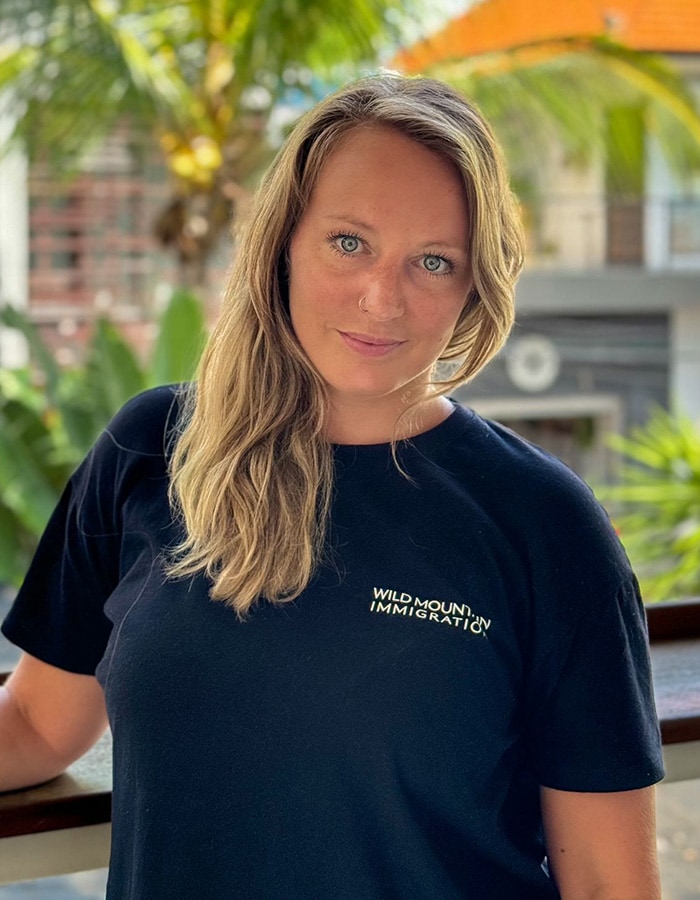Spousal sponsorship is a critical immigration pathway for Canadian citizens and permanent residents who wish to reunite with their spouse, common-law partner, or conjugal partner in Canada.
But how long does spousal sponsorship take in Canada?
On average, the processing time remains around 12 months, but this can vary depending on several factors. In this detailed guide, we will cover how long the spousal sponsorship process typically takes, the categories of sponsorship, and steps to ensure a smoother application process.

Canadian Immigration Consultant
Let our expert team of Canadian immigration consultants guide you through the complexities of Canada’s immigration process. We provide personalized, step-by-step support to ensure a smooth and successful journey to your new life in Canada.
What is Spousal Sponsorship?
Spousal sponsorship is a part of the Family Class immigration category in Canada. It allows Canadian citizens or permanent residents to sponsor their spouse, common-law, or conjugal partner for permanent residency. The primary goal of this program is to reunite families in Canada.
To be eligible as a sponsor, you must meet specific criteria:
- Be at least 18 years old.
- Reside in Canada (or prove you will live in Canada once your partner becomes a permanent resident).
- Be financially able to support your spouse or partner.
For the sponsored person, they must pass background, security, and medical checks. Understanding the timeline and process involved in spousal sponsorship is essential to avoid unnecessary delays.

Spousal Sponsorship Categories: Inland vs. Outland
When looking at how long does spousal sponsorship take in Canada?, it’s important to differentiate between the two main categories: Inland sponsorship and Outland sponsorship.
Inland Sponsorship
This option is for couples who are already living together in Canada, often with one partner on a temporary visa (e.g., work or study permit). One benefit of Inland sponsorship is that the sponsored person may be eligible for an Open Work Permit, allowing them to work while their application is being processed.
Timeline: Inland applications typically take around 12 months to process. However, certain factors like the completeness of the application, additional documents, or medical checks can extend this time.
Outland Sponsorship
Outland sponsorship applies when the sponsored partner resides outside of Canada. This option provides more flexibility for the sponsored person to remain in their home country while the application is processed.
Timeline: The standard processing time for Outland applications is also around 12 months, although factors like the applicant’s country of residence and the visa office handling the application can impact this timeline.
How Long Does Spousal Sponsorship Take in Canada?
As of 2024, the general processing time for both Inland and Outland spousal sponsorship applications remains approximately 12 months. However, understanding the various stages of the process and factors that can influence this timeline will help you manage your expectations.
Spousal Sponsorship Processing Stages
To better understand how long spousal sponsorship takes in Canada, it’s helpful to break the process down into its key stages:
- Submission and Initial Review: After submitting your application, IRCC (Immigration, Refugees, and Citizenship Canada) will conduct an initial review to ensure all required documents are included. This review typically takes a few weeks.
- Background Checks and Medical Exams: During this stage, the sponsored person will undergo security checks, background checks, and a medical examination. Depending on the applicant’s country of residence and personal history, this stage can vary in length.
- Final Decision: Once all checks are completed and all documents are verified, IRCC makes a final decision. If approved, the sponsored partner becomes a permanent resident.
Factors Affecting Processing Times
Though the standard spousal sponsorship processing time in Canada is 12 months, certain factors can impact this timeline, making it shorter or longer. Here’s what you need to consider:
1. Completeness of the Application
A major factor influencing processing times is the completeness and accuracy of the application. Missing documents or errors can cause IRCC to request additional information, delaying the process. Ensuring you submit a well-organized and thorough application will reduce the chances of delays.
2. Country of Residence
The country of the sponsored partner can impact processing times. Some countries may experience longer processing times due to higher security concerns or the workload at local visa offices.
3. IRCC Workload
The overall workload at IRCC can also affect how long spousal sponsorship takes in Canada. Processing times may increase during high-volume periods (such as following immigration policy changes) or global events that slow down operations.
4. Additional Reviews or Interviews
If IRCC has concerns about the genuineness of the relationship or if discrepancies are found, they may request an interview or additional documents, extending the overall timeline.
5. Medical and Security Checks
These are mandatory and sometimes time-consuming steps. Delays in receiving medical exam results or in the background verification process can slow down the application.

Steps to Ensure a Smooth Application Process
To avoid delays and ensure that your application is processed as smoothly as possible, consider the following tips:
- Gather All Required Documents: Ensure you have all necessary documentation before you begin the application process. Missing or outdated documents can cause delays.
- Double-Check Your Forms: Ensure that every form is filled out correctly and completely.
- Provide Strong Proof of Relationship: This includes joint bank accounts, photos, and communication records to prove the authenticity of your relationship.
- Apply Online: Online applications are often processed more quickly than paper-based ones.
- Stay Updated on IRCC Requirements: Regularly check the IRCC website for any updates or changes to the required documents or procedures.
- Respond Promptly to IRCC Requests: If IRCC requests additional documents or information, respond as quickly as possible to avoid delays.
What to Do If Your Application is Delayed
If your spousal sponsorship application is taking longer than expected, there are steps you can take to address the situation:
- Check Application Status Online: Use IRCC’s online tools to monitor your application’s progress.
- Review IRCC Communication: Ensure you haven’t missed any important emails or letters requesting further information.
- Submit a Case-Specific Inquiry: If your application is significantly delayed, you can submit an inquiry through the IRCC website to ask for an update.
Consult an Immigration Lawyer: If delays continue without clear reasons, consider hiring a lawyer or immigration consultant to help address the situation.
Conclusion: How Long Does Spousal Sponsorship Take in Canada?
Understanding how long spousal sponsorship takes in Canada requires patience and thorough preparation. While the average processing time is around 12 months, factors like the completeness of your application, your country of residence, and IRCC’s workload can significantly impact this timeline. To help reduce delays, it’s essential to submit a well-prepared, accurate application and stay updated on any changes to IRCC requirements. If unexpected delays occur, knowing the steps to address them will help keep your application on track and increase the likelihood of a smoother process.
How We Can Help
At Wild Mountain Immigration, our experienced team of certified Canadian immigration consultants is here to help you navigate the complexities of the immigration system. Whether you’re applying for permanent residency, a work permit, or dealing with a complex immigration case, we provide personalized support tailored to your needs.
Contact us today to learn how we can help you achieve your Canadian immigration goals.
FAQs
Sponsoring a spouse in Canada typically takes about 12 months from the time the application is received by Immigration, Refugees, and Citizenship Canada (IRCC). However, processing times can vary depending on factors such as the type of application (Inland vs. Outland), the applicant’s country of residence, and the completeness of the application.
The success rate for spousal sponsorship in Canada is generally high, with approval rates typically around 80% to 85%. Success largely depends on submitting a complete and accurate application with sufficient proof of a genuine relationship.
First stage approval, often called “Approval in Principle” (AIP), occurs when IRCC confirms that the sponsor meets the eligibility requirements and the relationship appears genuine. After this, the application moves to the second stage, which includes background checks and medical examinations for the sponsored spouse.
The cost to sponsor a spouse in Canada includes several fees:
- Sponsorship fee: $85 CAD
- Principal applicant processing fee: $570 CAD
- Right of Permanent Residence Fee (RPRF): $515 CAD
- Biometrics fee: $85 CAD The total cost is approximately $1,255 CAD, but it can be higher if additional services or dependents are included.
Several factors can cause delays in the spousal sponsorship process, including incomplete applications, high volumes of applications, additional background checks, or the need for an interview. Global events, such as pandemics, can also impact processing times.
The processing time for a spouse visa in Canada is typically around 12 months. This time frame can be shorter or longer depending on specific circumstances, such as the applicant’s country of residence and the completeness of the application.
To help speed up your spousal sponsorship application, ensure that all required documents are submitted, forms are filled out accurately, and any additional information requested by IRCC is provided promptly. Applying online and providing thorough proof of your relationship can also help avoid delays.
As of recent updates, all spousal sponsorship applications must be submitted online unless accommodations are needed for disabilities. Additionally, biometric information is now required for most applicants, and certain processing fees have been updated. It’s important to stay informed about any changes on the IRCC website.
Sponsor approval usually takes a few weeks after the application is submitted. This is part of the first stage of processing, where IRCC determines whether the sponsor meets the eligibility criteria.
If you are the sponsor, you can leave Canada temporarily while the application is being processed. However, if you are the sponsored spouse applying under Inland sponsorship, it is recommended to remain in Canada during the processing period to avoid complications.
The rejection rate for spousal sponsorships in Canada is relatively low, generally around 15% to 20%. Applications are most commonly rejected due to insufficient proof of a genuine relationship, incomplete applications, or failure to meet eligibility criteria.
An interview is not required for all spousal sponsorship applications. However, IRCC may request an interview if there are concerns about the genuineness of the relationship or if additional clarification is needed.
You are not eligible to sponsor a spouse in Canada if you:
- Are under 18 years of age
- Are not a Canadian citizen, permanent resident, or registered under the Canadian Indian Act
- Are in prison, bankrupt, or have been convicted of certain crimes
- Are receiving social assistance (except for disability reasons)
- Have previously sponsored a spouse and it has been less than three years since they became a permanent resident.
Canadian Immigration FAQs
Find quick answers to the most common questions about Canadian immigration, visas, and permanent residency.
LMIA Costs Explained: How Much Does LMIA Cost in 2024?
For Canadian employers seeking to hire foreign workers, a Labour Market…
Can I Leave Canada After Applying for Spousal Sponsorship?
When applying for spousal sponsorship in Canada, many applicants wonder,…
Who Can Apply for BOWP (Bridging Open Work Permit) in Canada?
If you’re transitioning from temporary status to permanent residence in…
Start Your Canadian Immigration Journey
Our experts make the process clear, stress-free, and successful, so you can move forward with confidence and focus on what matters most.

Contact Us
Immigration questions and service enquiries
Consultation
Speak to an expert
immigration consultant
"*" indicates required fields



